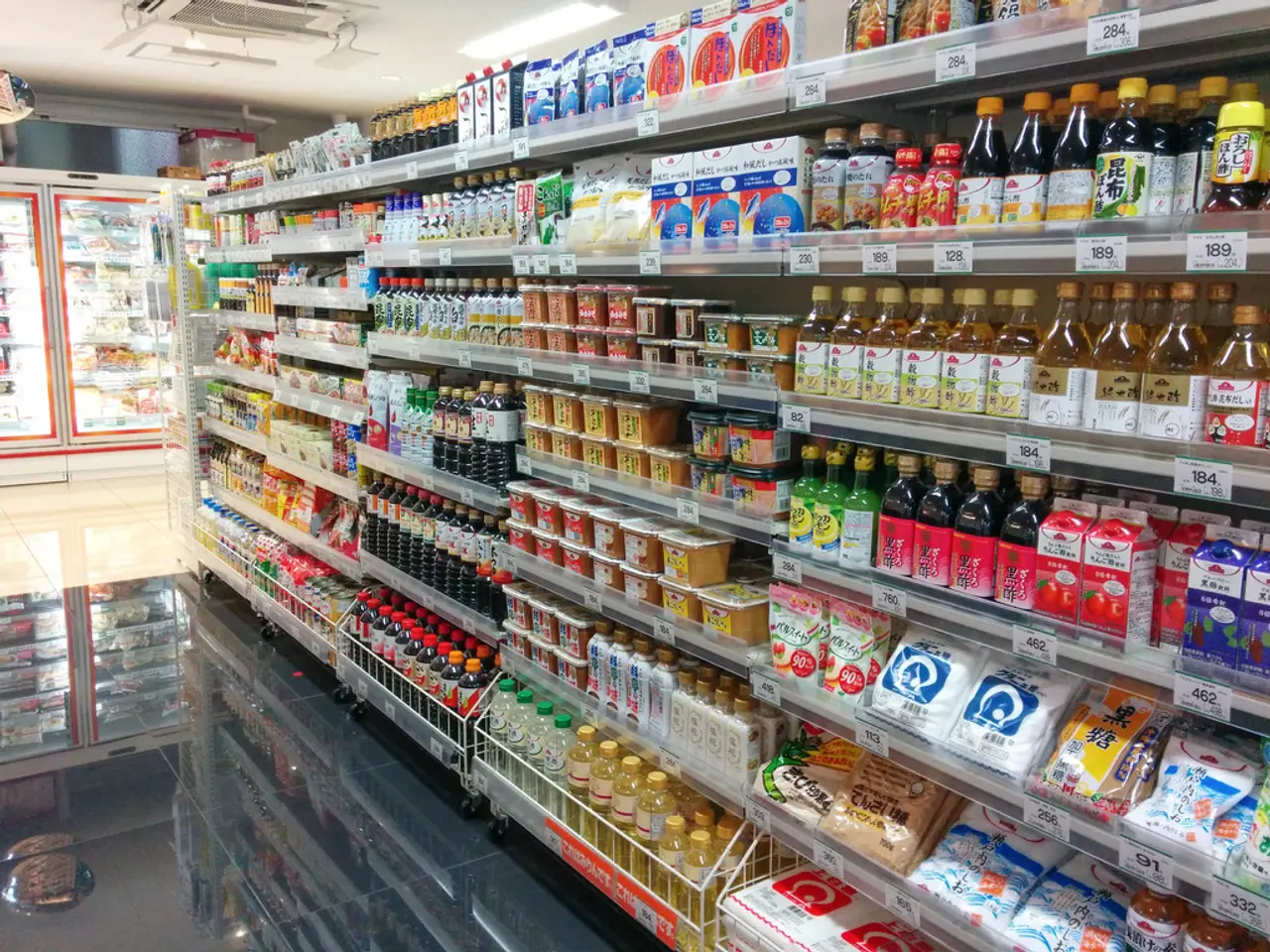Holiday expenses to push consumers into credit card debt, with Buy Now, Pay Later options sought as an affordable alternative
In the lead-up to the holiday season, retailers are adopting a variety of strategies to navigate the uncertain landscape of tariffs, inflation, and cautious consumer spending. A recent survey by Inmar Intelligence sheds light on these strategies and the responses of consumers.
According to the survey, the majority of respondents plan to reduce their spending on groceries and other necessities to cover their holiday expenses. This trend is reflective of a broader trend of consumer belt-tightening as they prepare for the festive period.
On the other hand, some retailers are choosing to increase their prices. E.l.f. Cosmetics, for instance, has announced plans to raise its prices by $1. However, not all retailers are following suit. J.C. Penney and The Home Depot have opted to hold their prices steady, aiming to remain competitive and attractive to price-conscious consumers.
The survey also revealed that nearly a third (32%) of respondents will shop at big-box retailers like Walmart and Target this holiday season. This is a significant portion of the market, but it's not the only demographic retailers are courting. 18% of respondents plan to shop with small businesses this holiday season, providing a potential boost for local businesses.
The digital sphere is also playing a role in holiday shopping. 16% of respondents will use ChatGPT or another AI tool for holiday shopping, indicating a growing trend towards digital assistance in shopping decisions. Moreover, 19% of millennials and 20% of Gen Z plan to use buy now, pay later services for holiday expenses, suggesting a willingness to manage their finances in innovative ways.
The survey also found that U.S. shoppers are willing to go into credit card debt for holiday spending, with 37% considering buying gifts more important than their credit card balance this holiday season. However, there is a growing intolerance of price increases among consumers for the holiday season. Half of respondents said they won't shop with retailers that increase their prices, which pressures retailers to balance value offers with emotional rewards in their marketing efforts.
Retailers are responding to this trend by reworking their stores to suit shoppers. Complementary shop-in-shops, age-appropriate experiences, and integrated technology are being implemented to create a more appealing shopping environment.
Notable retailers like Walmart and Lululemon have warned of higher prices to cope with tariffs. However, the survey suggests that consumers are being strategic in their holiday spending decisions. They are choosing to spend most of their holiday purchases with Amazon (47%), indicating a preference for retailers that offer competitive prices and a wide selection of products.
In essence, there is no uniform approach among retailers. Some are front-loading inventory early to hedge against supply chain and tariff impacts, while others are more cautious with orders to avoid overstock and pricing themselves out of demand. The common thread is an emphasis on delivering both value and emotional purchase incentives to wary consumers.
This information is based on a survey of 2,000 consumers conducted by Censuswide for Invoice Home. The survey did not provide specific details about the demographic breakdown of the respondents. However, it offers valuable insights into the strategies retailers are employing and the responses of consumers as they navigate the holiday shopping season.
- As technology advances, AI tools like ChatGPT are being increasingly utilized for holiday shopping, demonstrating a trend towards digital assistance in decision-making.
- The industry is witnessing a growing trend of retailers adopting different strategies to cope with economic uncertainties, such as tariffs and inflation, and cater to cautious consumer spending.
- Amidst the competition, retailers are implementing technology in their stores to create a more appealing shopping environment, offering services like shop-in-shops and integrated technology.
- In the world of finance, about half of consumers have expressed intolerance towards price increases during the holiday season, putting pressure on retailers to balance value offers with emotional rewards in their marketing strategies.
- The survey showed that the retail sector, including big-box stores like Walmart and Target, as well as small businesses, will likely benefit from the holiday shopping season, with 18% and 32% of respondents planning to shop at these respective demographics.
- In personal-finance decisions, millennials and Gen Z consumers are showing a preference for using buy now, pay later services for holiday expenses, indicating a willingness to manage their finances in innovative ways.




